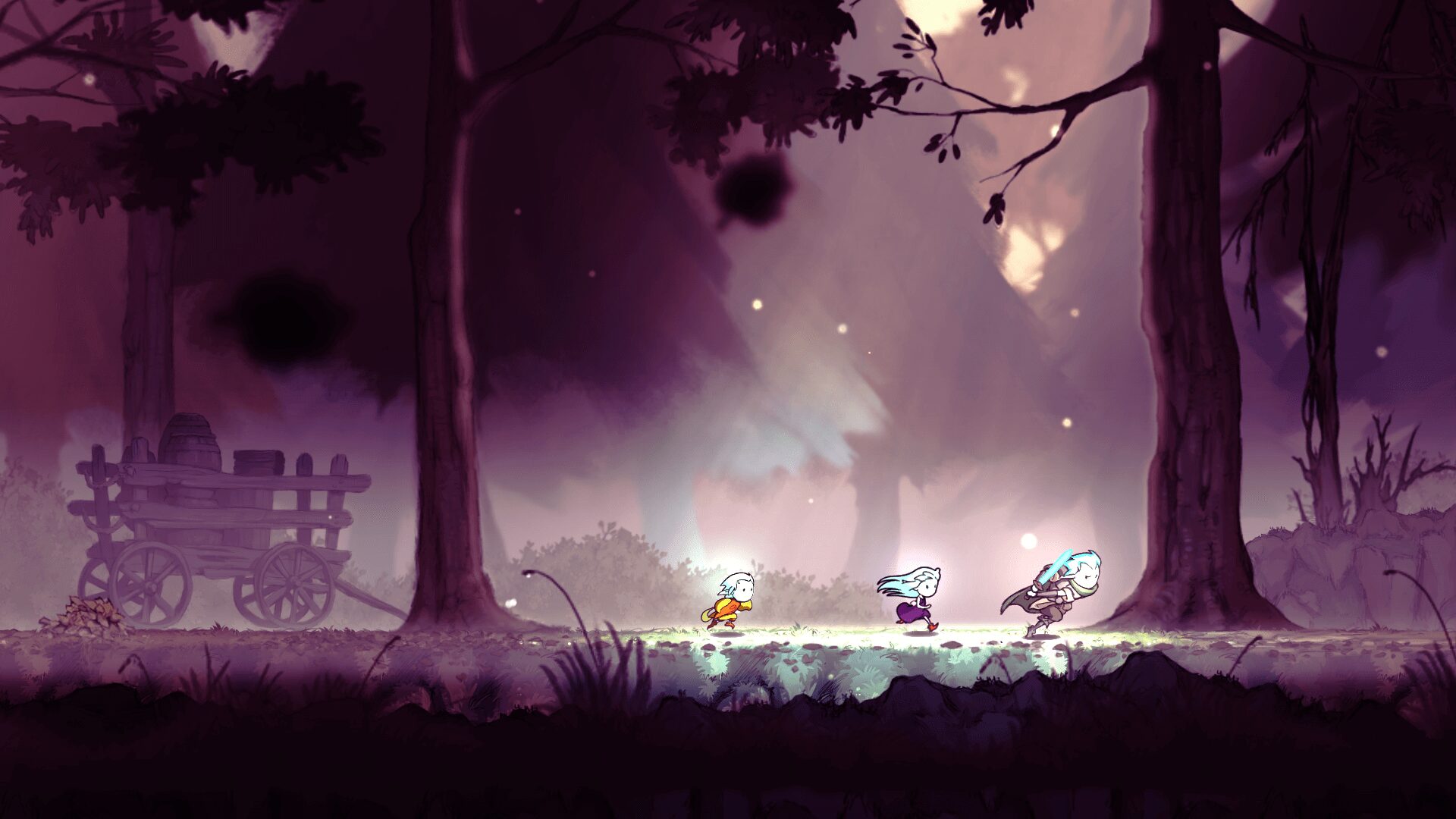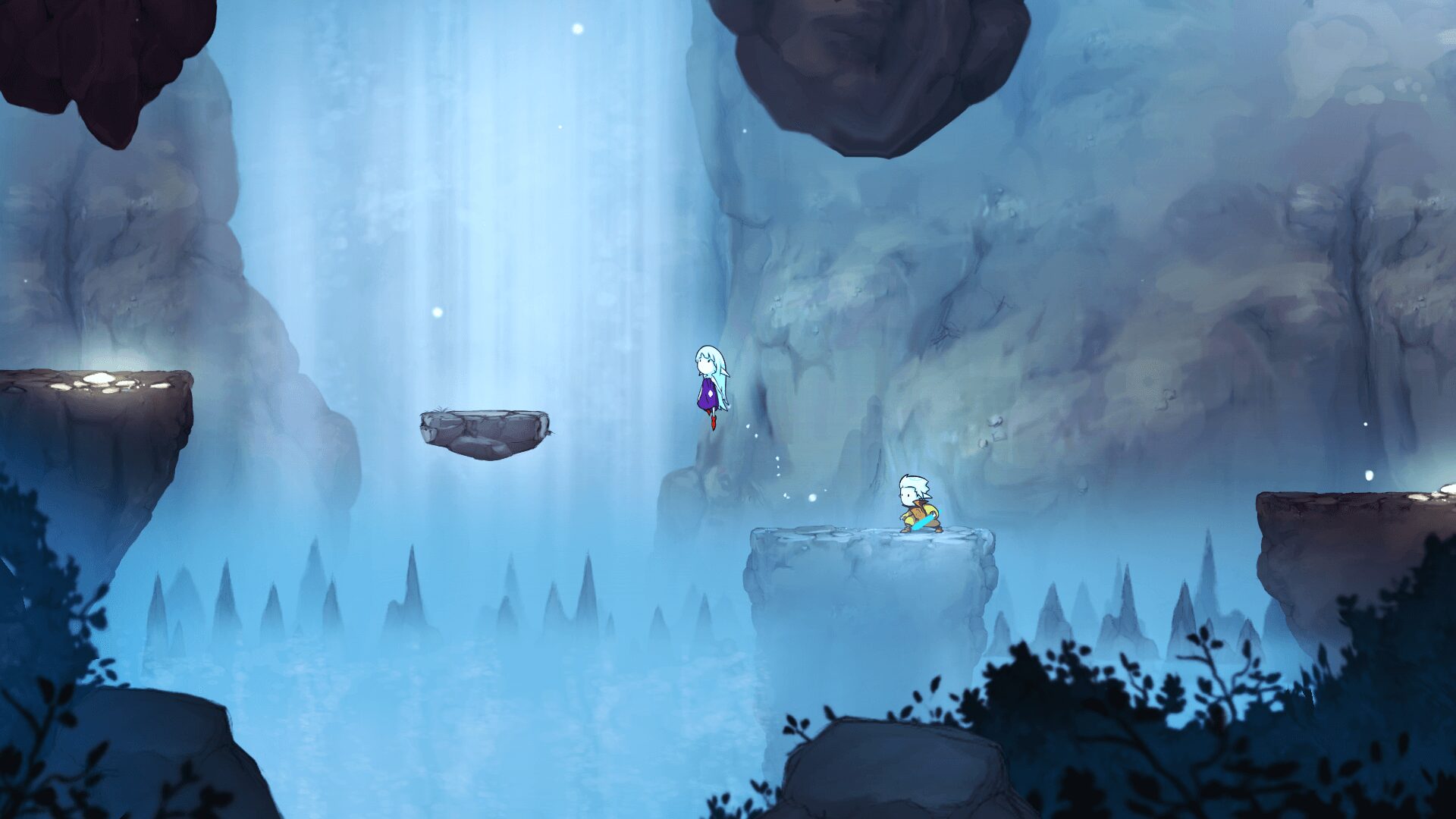Greak: Memories of Azur honors the power in family
Greak: Memories of Azur is a Metroidvania with hand-drawn animations, which tells the epic adventure of three magical Courine siblings fighting to free their land of Azul from evil.
You begin the game playing as Greak, the youngest of the three siblings. Greak is a well-rounded warrior, nimble and quick, with a sword that’s just his size. He has the ability to do both double-jumps and bound up walls, which offer him verticality, but ultimately keep him tethered to walls and platforms. His sword does some damage to the legion of mud monsters you’ll be fighting known as the Urlag, but it’s better to keep dodging their attacks, as it will take multiple hits to down anything other than some of the simple, spiky blob enemies that serve more as obstacles than proper foes. Greak also has a crossbow that gives him a ranged attack but with limited distance and ammunition.
The sister of the sibling trio, Adara, has more magic than might. Her ability to conjure up balls of light energy serves as her weapon, but is limited by the amount of energy she has. The big trick with Adara is her ability to effortlessly move through the air, using her magical energy, which allows her to both slowly descend, covering long distances and flying upwards for a little while. Managing the amount of magic she has left while floating over chasms is the challenge with her otherwise overpowered traversal techniques.
Where the game sets itself apart is its gameplay, which feels as though it has been a little bit borrowed from a Super Nintendo-era game called The Lost Vikings. In The Lost Vikings, you controlled three different Vikings, each with their own skillset, and had to use their special abilities to make it to the goal. In Greak: Memories of Azur, you must independently control the siblings to help them open gates to the next area, pulling levers and solving puzzles along the way. You can also hold down a button to make the sibling you aren’t currently controlling follow in step the exact commands of the other one. This can lead to some undesired results at times, but it’s good to use on long stretches of running segments and is required for some of the puzzles.
 Balancing the powers of the three and discovering where their abilities can be used best is the whole gameplay mechanic. This can be frustrating, sure, but it offers up a requirement to get a feel of each character and their strengths and weaknesses. You get a firsthand experience of the power of their teamwork and how strong they are in tandem. It’s a platforming game, so there’s bound to be some missteps, but the combat and mobility are expertly designed, so each time you falter, you’ll only have yourself to blame.
Balancing the powers of the three and discovering where their abilities can be used best is the whole gameplay mechanic. This can be frustrating, sure, but it offers up a requirement to get a feel of each character and their strengths and weaknesses. You get a firsthand experience of the power of their teamwork and how strong they are in tandem. It’s a platforming game, so there’s bound to be some missteps, but the combat and mobility are expertly designed, so each time you falter, you’ll only have yourself to blame.
The artwork in Greak is downright jawdropping. The hand-painted look makes the game appear as if it was ripped right out of an animated feature film from the nineties, and the laboring process of hand-drawing the animation has certainly paid off: it looks fluid and alive as a result. The environments are spooky and unsettling, but the brief flashes of color on objects and within the background resemble importance, which works to symbolize the hope the game continues to reference. The characters are charming and cute, but you can’t help but feel the weight of the responsibility these kids have, defending the lands their family worked so hard to protect. The orchestrated score further exemplifies the epic task they find themselves looking to fulfill.
 Come for the art, stay for the tight combat and interesting character-swapping mechanics; Greak: Memories of Azur has a lot to offer. The art and music intertwine to fuel the heart-wrenching story about a family sticking together to overcome the odds, making it an epic adventure you’re not going to want to miss when it releases later this year.
Come for the art, stay for the tight combat and interesting character-swapping mechanics; Greak: Memories of Azur has a lot to offer. The art and music intertwine to fuel the heart-wrenching story about a family sticking together to overcome the odds, making it an epic adventure you’re not going to want to miss when it releases later this year.
Greak: Memories of Azur is scheduled to release early in 2020, but I took a look at the game at PAX South. Follow them on Twitter or check out their website for more information.
Comments are closed.